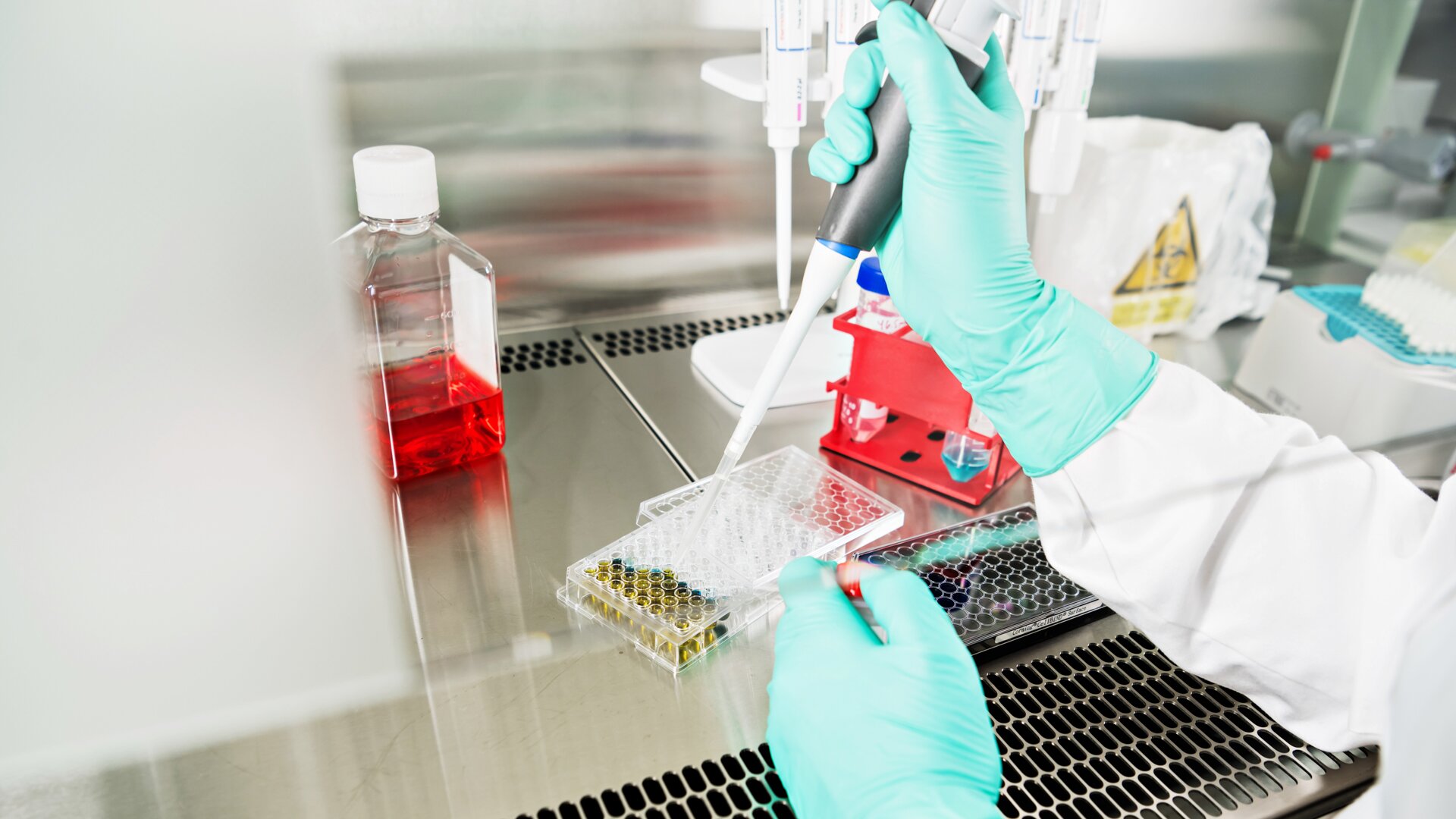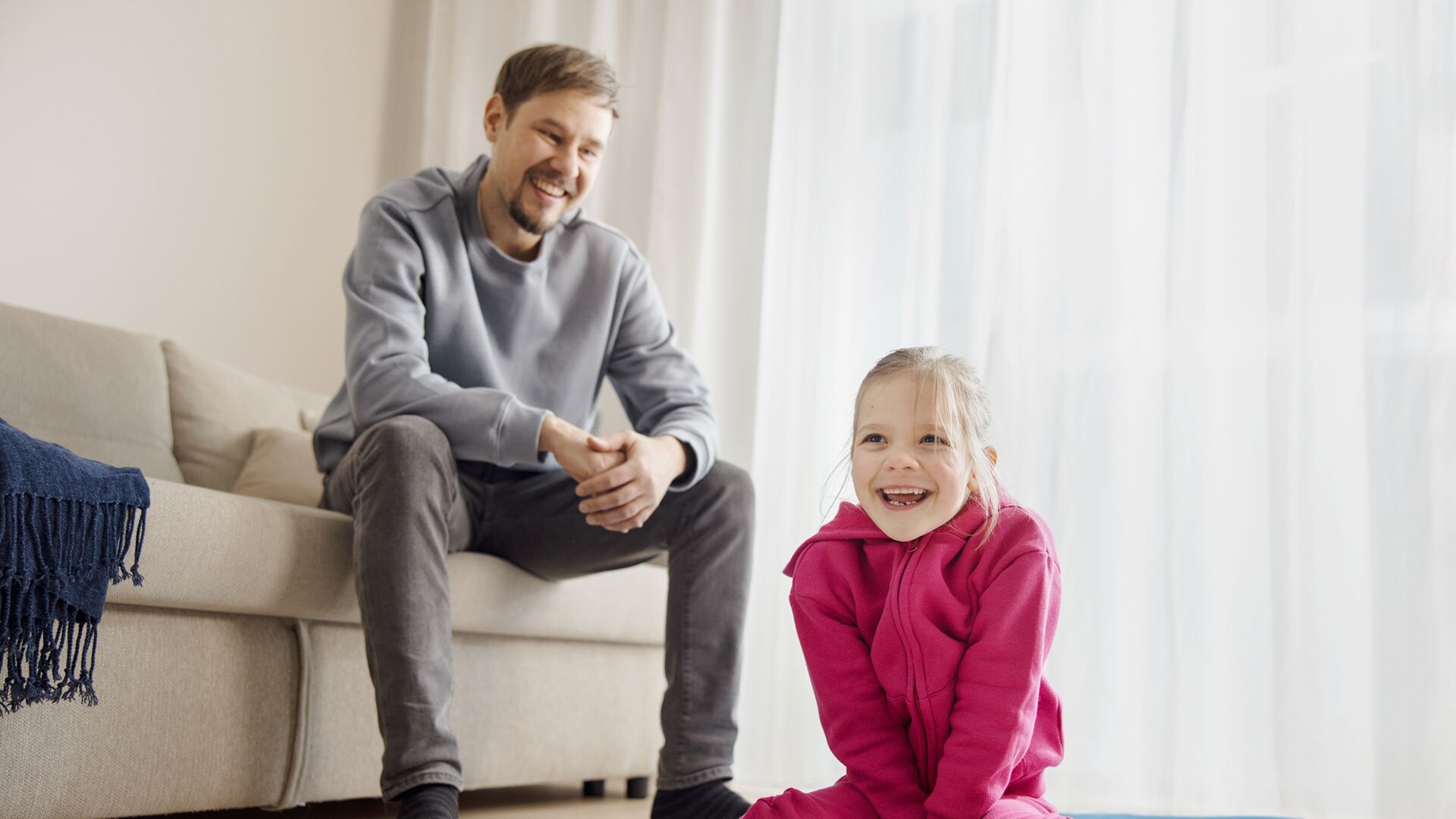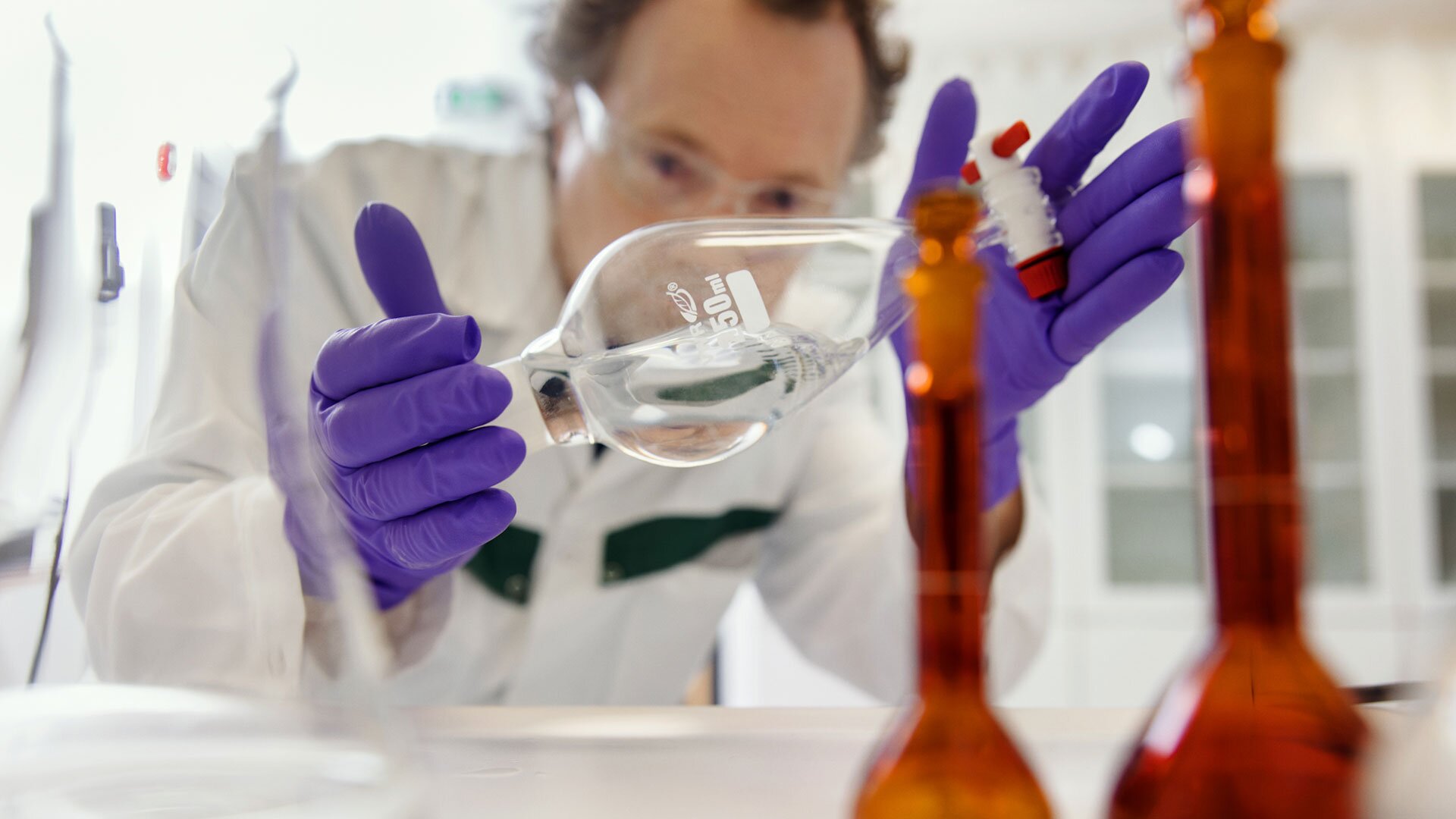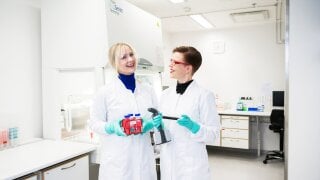“What motivates me most is the knowledge that a patient will benefit from this someday,” says Mira Leppänen-Mattelmäki, a Research Associate in the pain team at Orion’s laboratory.
Minna Vuorenmaa, a Research Assistant at Orion, agrees. The work feels meaningful because helping people is motivating – in Vuorenmaa’s case, it’s helping cancer patients, as she works in a cancer research team.
She has worked in Research and Development at Orion’s laboratory for over four years, while Leppänen-Mattelmäki has worked there for 13 years. The work is never boring as the tasks are varied and you learn new things all the time.
“Doing scientific research is really interesting. Today, we were on the verge of new knowledge when we carried out a laboratory experiment to test whether a new molecule works as expected,” Vuorenmaa says.
Flexibility, responsibility and control of your own work
A research assistant carries out and documents laboratory experiments designed by a researcher. The job also involves maintaining the laboratory, including servicing equipment and ordering reagents, or substances that facilitate chemical reactions.
In experiments, assistants test how cells grown in the lab react to the active ingredients being developed, for example.
“Our discovery may well be one that we have not anticipated. It could turn the course of research. That’s why you have to be flexible in this job, and it’s not for someone who wants the same routines repeated every day,” says Leppänen-Mattelmäki.
Laboratory testing also requires working independently. Decisions may have to be made and justified at short notice, which means a research assistant must have the courage to take responsibility. But you don’t have to make decisions alone, as your colleagues are always there to help,” Vuorenmaa says.
The work also requires a high level of organisation and diligence.
“Managing your own work is important. You have to maintain focus, even when a lot of things are happening at the same time,” says Leppänen-Mattelmäki.

In a multinational working environment, interpersonal skills are essential
Orion’s laboratories in Espoo and Turku have a total of about 100 research assistants working in 15 teams. The job description of a research assistant varies, as laboratory studies are needed from the very beginning of drug development until the end of the process. For Research and Development, the goal is to discover new drugs and study their efficacy and safety.
Like Leppänen-Mattelmäki and Vuorenmaa, many of Orion’s research assistants have a degree from a university of applied sciences. They are both bioanalysts by training. The assistants also include graduates with a vocational qualification in laboratory technology as well as university graduates.
A research assistant’s closest colleagues are the other assistants and the researchers. When you work closely together and across team boundaries, communication skills are important.
“It's always nice to come to work because we have an inspiring and warm atmosphere. We are team players here and you always get help when you need it,” Vuorenmaa says, and adds that today she and her colleagues decorated a colleague’s room for her birthday.
Leppänen-Mattelmäki agrees and calls her co-workers ‘super colleagues’.
“When you’re working hard, things happen, but the atmosphere is so supportive and accepting that you aren’t afraid to admit your mistakes.”
The working community in the laboratory is multinational and the working language is often English.
“The fact that we are such a diverse group makes the community dynamic. Because we come from different backgrounds, schools and workplaces, we don’t have the mentality of doing things the way they’ve always been done. We are open to new ideas,” says Leppänen-Mattelmäki.
Chance to influence the course of research
Orion is a unique employer for laboratory workers in Finland. No other company in Finland engages in research and development on this scale. At Orion, it is possible to see the entire span of drug development and research.
Leppänen-Mattelmäki finds this motivating and inspiring.
“I am still amazed at how cells can be isolated from human or animal tissue and grown further in laboratory conditions.”
Researchers play the most important role in drug development, but development is first and foremost a collaborative effort that could not succeed without skilled assistants.
“We are working together towards a common goal,” Vuorenmaa says.









